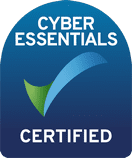Recently I have had a number of solopreneurs sign up for our Firestarter Package and there are two questions I’ve been asked again and again – ‘What’s the cloud?’ and ‘Is it something I should be using?’
Now, if you are in the IT industry then you will no doubt know exactly what the cloud is, in fact you have probably been bombarded with information on the subject.
But if you’re just starting out on your own in business or if your business focuses on something entirely outside the IT industry then there’s a good chance you won’t be that familiar with cloud computing and what it could potentially do for you and your business. You may even be using a little bit of it and not even be aware!
At TTG we love solving IT-related problems for our customers but we also try to help out in terms of educating our customers so that they can get the most out of their IT.
So today’s blog post is about the cloud and how cloud computing works for businesses.
What does cloud computing mean?
Cloud computing essentially refers to the process of storing and accessing data and programmes via the internet rather than on a specific computer’s hard drive.
When you store data on or run programmes from your computer’s hard drive, that’s called local storage. Enterprises call it “on premises”. Years ago you probably called it your ‘C drive’ which basically means ‘the hard drive on your laptop or computer’.
Although cloud computing has been around for a very long time, it’s only been in recent years that it has developed to the point at which it is practical to allow businesses and consumers to use it on a routine basis – helped by in the increase in broadband speeds.
The impact of all this has been that rather than having everything stored on your computer/laptop everything can now be stored in a particular area of the internet or ‘in the cloud’ on your behalf.
Unlike the old days when you would need access to a specific computer in order to get the information you wanted. Now you can access it anywhere in the world and from anyone’s laptop, computer or mobile device as long as you have an internet connection and the right log in details.
Why use cloud computing?
You can access your data and documents via the cloud from desktop computers, tablet devices, laptops or mobile phones from anywhere in the world.
Collaboration. Cloud computing allows you to easily share your documents with members of your team on a global as well as a local basis. It also allows you to include freelancers and suppliers in the sharing of documents for specific projects or purposes.
Two or more people can update a document at the same time and all changes are automatically saved, making it incredibly time efficient as you are not waiting around for someone to update the document before you do.
Large organisations and corporate entities generally have disaster recovery capabilities in place to protect their operations in the event of worst-case scenarios.
This kind of protection though has tended to be out of the reach of most small business owners and solopreneurs because of the costs involved. With cloud-based backup and recovery services, it is possible to have the same levels of protection at fraction of the cost.
You only share what you want to share – so if you are working on a project with a number of different suppliers you can decide what they get to see and what they don’t. You are able to give people access to one document only, one folder, one directory. And each person can have different levels of access – you decided what they can and cannot have.
Cost reductions. The cloud is more cost effective when it comes to installing applications as the majority of the infrastructure is already in the cloud. However, it is important to compare the features of installed vs cloud software to ensure you have everything you need when switching to the cloud.
You also save additional costs on increased memory, hard drive space and processing power as these are all eliminated when you move to the cloud.
Let me just give you an example where one TTG client benefited from using the cloud.
Case study
Our client in this case is a solo-entrepreneur who provides business mentoring and marketing services to female business owners all over the world.
She wanted to take her blogging course, which she had always delivered face-to-face, and put it online so that she could serve more people simultaneously.
The difficulty she was experiencing was the sheer amount of work involved. She had to learn about membership sites, running online programmes as well as creating the content for her programme which is where she wanted to focus her time.
TTG provided an alternative and an incredibly easy option…Put everything in the cloud.
Branding and communication – The cloud platform we created was branded in our client’s colours so thather clients had a seamless experience of the business as soon as they clicked on the link to access the programme.
From there, information could be clearly sign-posted into weekly modules. Inside the modules were training videos which could be played instantly, along with links to exercises, cheat sheets and check lists.
So, thanks to the cloud, our client could offer a more interactive service and one that was much richer, more flexible, cost-effective and easy to use for her.
Finding the right cloud package
Cloud computing is well worth discovering whatever size or type of business you run or are involved in operating. However there are very different ways in which cloud-based solutions can be deployed and there isn’t just a one-size-fits-all way of making use of these technologies and solutions.
So it’s important to speak to experts on the subject before you invest in cloud computing solutions for your business. But there is certainly every reason to believe that there are at least a few ways in which using the cloud could have a big impact on your operations whether you are an SME, a solopreneur or you employ hundreds or even thousands of people.
If you would like to find out more about cloud computing then please email [email protected] for more information.







Leave a Reply
You must be logged in to post a comment.